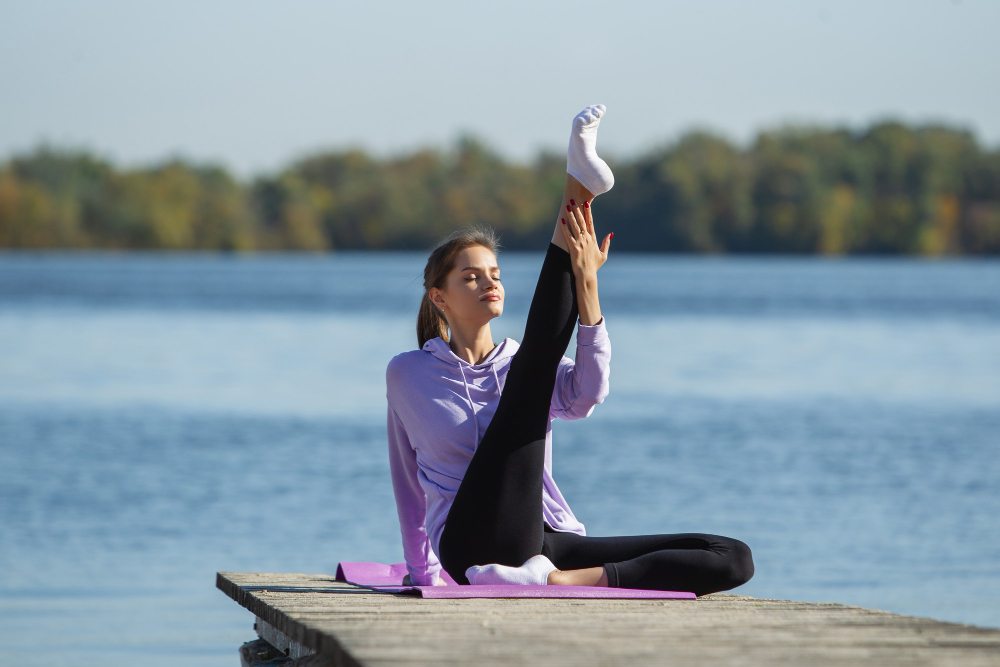The Benefits of Exercise for Mental Health

What is the link between exercise and mental health?
There is a growing body of research that suggests that exercise can have a positive impact on mental health. In fact, regular exercise is now considered to be an effective treatment for a variety of mental health conditions, including depression, anxiety, and post-traumatic stress disorder (PTSD).
How does exercise improve mental health?
There are a number of ways that exercise can improve mental health. For example, exercise can:
- Increase the production of endorphins, which are hormones that have mood-boosting effects
- Reduce stress and anxiety
- Improve sleep quality
- Increase self-esteem and self-confidence
- Promote social interaction
- Provide a sense of accomplishment
What are the specific benefits of exercise for different mental health conditions?
Exercise has been shown to be effective in treating a variety of mental health conditions, including:
Depression:
Exercise can help to reduce symptoms of depression, such as low mood, fatigue, and changes in appetite and sleep patterns.
Anxiety:
Exercise can help to reduce symptoms of anxiety, such as racing thoughts, muscle tension, and panic attacks.
PTSD: Exercise can help to reduce symptoms of PTSD, such as flashbacks, nightmares, and avoidance behaviors.
What are the best types of exercise for mental health?
Any type of exercise that gets your heart rate up and makes you sweat can be beneficial for mental health. However, some types of exercise may be more beneficial than others for certain mental health conditions. For example, aerobic exercise, such as running, swimming, and biking, is often recommended for depression and anxiety. Strength training can also be beneficial for mental health, as it can help to improve self-esteem and reduce stress.
How much exercise do I need to do to improve my mental health?
The Centers for Disease Control and Prevention (CDC) recommends that adults get at least 150 minutes of moderate-intensity aerobic activity or 75 minutes of vigorous-intensity aerobic activity each week. In addition, adults should do muscle-strengthening activities that work all major muscle groups (legs, hips, back, abdomen, chest, shoulders, and arms) on two or more days a week.
How can I get started with an exercise program?
If you’re new to exercise, it’s important to start slowly and gradually increase the amount of time you spend exercising each week. It’s also important to find an activity that you enjoy and that fits into your lifestyle. Here are a few tips for getting started with an exercise program:
- Talk to your doctor before starting any new exercise program, especially if you have any health conditions.
- Set realistic goals. Don’t try to do too much too soon.
- Find an activity that you enjoy. This will make it more likely that you’ll stick with your program.
- Make exercise a part of your daily routine. Schedule time for exercise just like you would any other appointment.
- Find a workout buddy. Exercising with a friend can help you stay motivated.
- Don’t be afraid to ask for help. If you’re struggling to stick with your exercise program, talk to a friend, family member, or fitness professional.
Conclusion
Exercise is a powerful tool that can help to improve your mental health. If you’re looking for ways to improve your mood, reduce stress, and boost your overall well-being, start exercising today.
FAQs
Q: How soon will I see benefits from exercise?
You may start to see benefits from exercise within a few weeks. However, it may take several months to see the full benefits of exercise on your mental health.
Q: What if I don’t like to exercise?
If you don’t like to exercise, there are still ways to get the benefits of physical activity. You can try different activities until you find one that you enjoy. You can also break up your workouts into shorter periods of time. For example, instead of trying to run for 30 minutes at a time, you could walk for 10 minutes, then run for 5 minutes, and repeat.
Also Read: Exploring the Best of England’s Countryside











